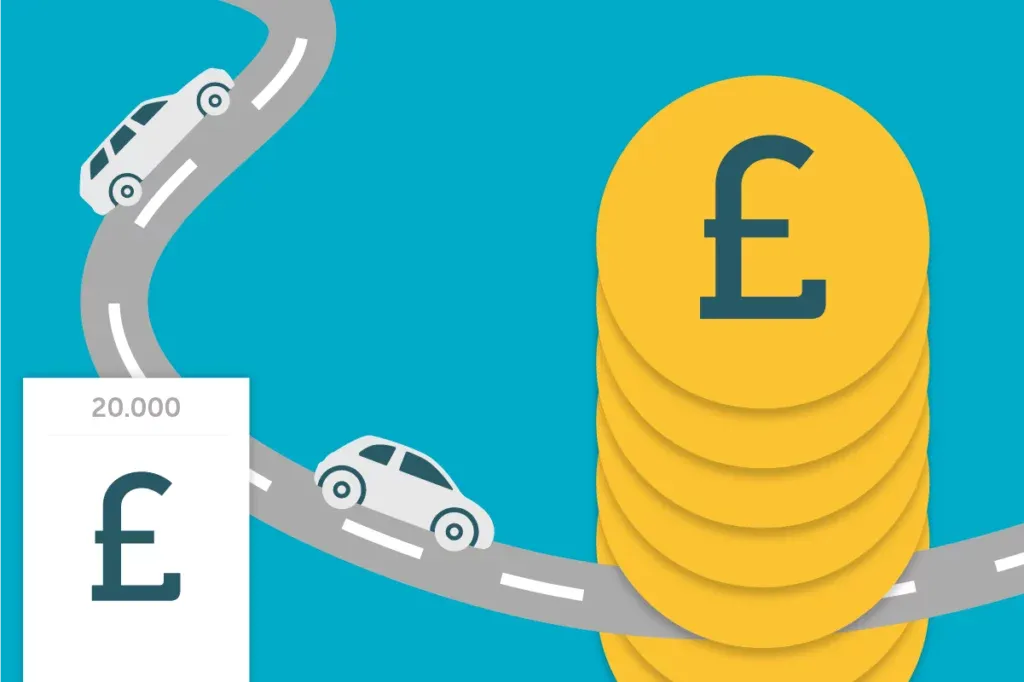When accounting for business-related travel expenses, sole proprietors and directors can claim business mileage. A business mileage claim reduces the tax on net profit since travel expenses are allowable business expenses. Businesses record mileage and keep relevant records to help them claim business mileage. Business mileage is claimed when a self-employed individual or a company director uses their vehicle to undertake journeys related to the business. When the business or company reimburses for the expenses at the right rate, the company can obtain tax relief on the reimbursement. Instead of individuals claiming different rates and justifying the business mileage claim, HMRC has a pre-approved mileage allowance for different cars that businesses can pay tax-free.
What Business Mileage Can I Claim?
According to HMRC, individuals can only claim mileage allowance when travelling for business purposes. That means, outside of daily commutes to permanent places of work, company owners and directors can file claims for business trips. Driving to the office and back is classified as commuting, not a business trip. Business mileage that counts and can be claimed is when:

- Travelling to a client’s workplace
- Travelling to an event, seminar, or work-related conference
- Travelling to a mandatory training workshop
- Travelling to a temporary work location
- Transporting products or services to customers
Sole traders and company directors can claim business mileage from their employers. When the business doesn’t pay them back for mileage or pays less than the approved rates, they can claim directly from HMRC.
Temporary workplaces
Regarding travelling to temporary workplaces, a few rules and exceptions apply for claiming business mileage. While individuals cannot claim business mileage when commuting to a permanent workplace, they can claim mileage when undertaking regular commutes to a temporary workplace (common for contractors). The following rules apply:
- A workplace is temporary if an individual goes to the location for a limited purpose.
- Individuals can claim business mileage for trips to a temporary workplace if they spend less than 40% of their overall work time there.
- The duration of the assignment should not exceed 24 months.
How Much Can I Claim for Business Mileage?
HMRC developed a simplified scheme called Mileage Allowance Payments (MAPs) to guide business mileage claims. Business owners or companies can pay employees specified mileage allowance payments annually without reporting them to HMRC. That means a business reimburses employees, and the approved mileage allowance payment (AMAP) will not have further tax implications. For cars and vans, the AMAP is 45p for the first 10,000 miles and 25p after 10,000 miles. For example, if the employee travels 12,000 miles in their vehicle, the approved business claim amount for the year is (45p x 10,000 plus 25p x 2,000) £5,000. When an employee has more than 1 car, the amount can be accumulated for the business claim.
Motorcycles and bicycles get an AMAP of 20p and 24p before and after 10,000 miles, respectively. Employees can claim an additional 5p per mile if they provide a ride for a fellow employee. Bicycle allowance is only available for limited companies.
What happens when a different amount is paid for mileage?
Companies aren’t obligated to reimburse business mileage and can use any rate they want. For instance, an employer can pay less than the approved rate, leaving the employee with out-of-pocket expenses. When an employer pays less, the employee can claim business mileage tax relief from HMRC on the difference between what the employer reimbursed and the AMAP.
When the employer pays the excess of the AMAP, it creates a tax benefit that a company can declare. Paying excess of approved rates results in tax liabilities for the employee. That’s why it is important to stick to the recommended HMRC rates.
What about vehicle maintenance costs?
The approved mileage rates usually include all vehicle-related costs, such as fuel and insurance. For instance, if an employee spends £10 on fuel and claims business mileage, they can receive a reimbursement of more than just £10. That means the reimbursement includes repair work and fuel costs, so employees cannot claim vehicle maintenance costs on top of the business mileage allowance. Aside from the business mileage claim, HMRC provides advisory fuel rates and mileage allowances based on the fuel type and vehicle’s engine size.
How To Claim Business Mileage
Claiming business mileage is as straightforward as claiming the fixed-rate approved mileage allowance. Some companies require employees to add up vehicle expenses for the year and calculate business mileage as a percentage of the total miles. Keeping the required records to show proof of business mileage is also crucial. For instance, an employee requires the following records:
- The start and end addresses of business trips, including postcodes.
- The dates of the business trips.
- Distance travelled throughout the year in miles.
- Employees who have received mileage allowance from employers should include the amount received to obtain mileage allowance relief.
After receiving a business mileage claim, maintaining records for 5 years, in case of a dispute or fines, is essential. Keeping track of mileage details is often complex, but business owners can find digital mileage-tracking solutions.
Conclusion
Company employees and directors can be reimbursed for business mileage expenses they incur while using their vehicles to travel for business purposes. It’s important that employees and employers understand how to claim business mileage.
Sources:
- https://www.gov.uk/expenses-and-benefits-business-travel-mileage/rules-for-tax
- https://www.gov.uk/government/publications/rates-and-allowances-travel-mileage-and-fuel-allowances/travel-mileage-and-fuel-rates-and-allowances
Disclaimer
This content is provided for informational purposes only and is not meant to be an endorsement or representation by FleetGO.com or any other party. This information may contain inaccuracies or typographical errors, despite our efforts to ensure accuracy. FleetGO.com accepts no responsibility or liability for any errors or omissions, and is not responsible for the contents of any linked website or any link contained in a linked website. Please refer to our full disclaimer for more details.


